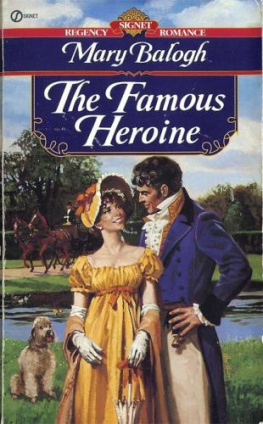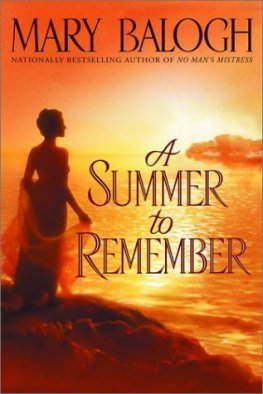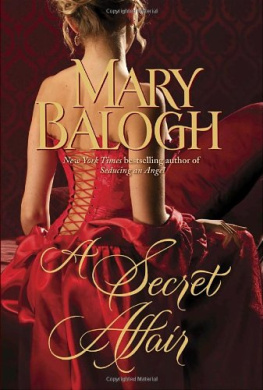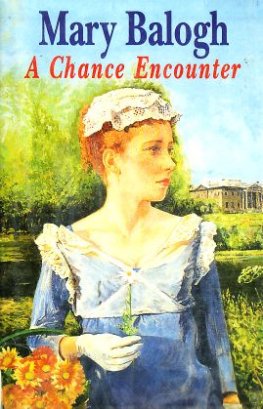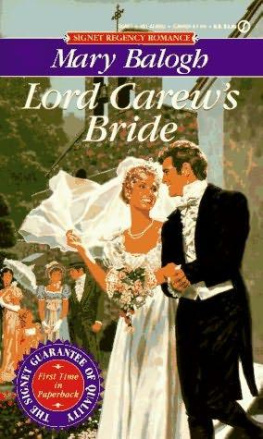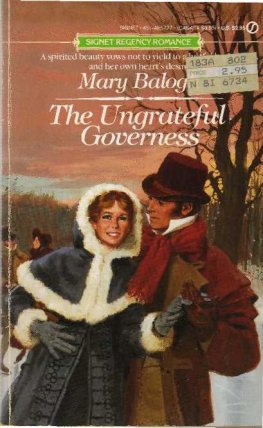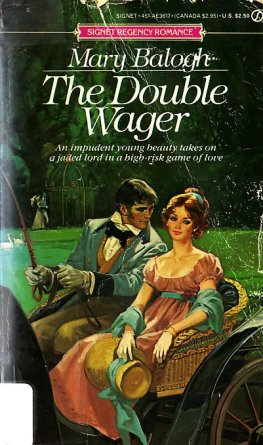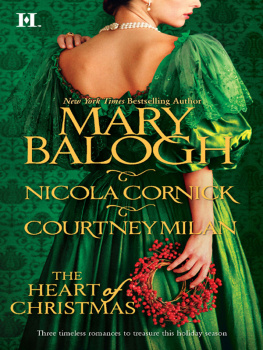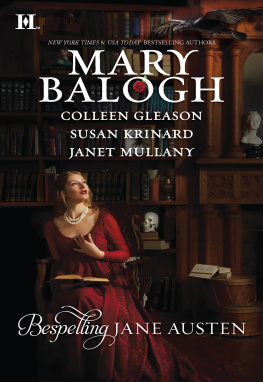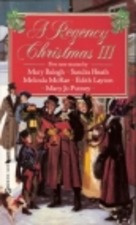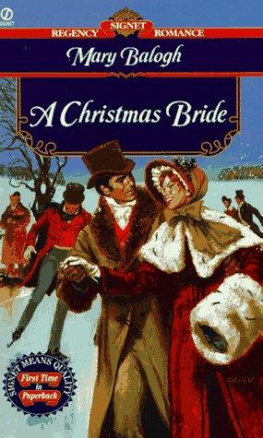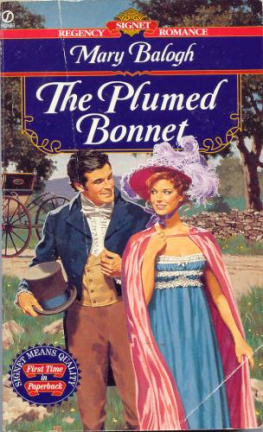Mary Balogh - The Famous Heroine
Here you can read online Mary Balogh - The Famous Heroine full text of the book (entire story) in english for free. Download pdf and epub, get meaning, cover and reviews about this ebook. year: 1996, publisher: Signet, genre: Prose. Description of the work, (preface) as well as reviews are available. Best literature library LitArk.com created for fans of good reading and offers a wide selection of genres:
Romance novel
Science fiction
Adventure
Detective
Science
History
Home and family
Prose
Art
Politics
Computer
Non-fiction
Religion
Business
Children
Humor
Choose a favorite category and find really read worthwhile books. Enjoy immersion in the world of imagination, feel the emotions of the characters or learn something new for yourself, make an fascinating discovery.
- Book:The Famous Heroine
- Author:
- Publisher:Signet
- Genre:
- Year:1996
- Rating:5 / 5
- Favourites:Add to favourites
- Your mark:
- 100
- 1
- 2
- 3
- 4
- 5
The Famous Heroine: summary, description and annotation
We offer to read an annotation, description, summary or preface (depends on what the author of the book "The Famous Heroine" wrote himself). If you haven't found the necessary information about the book — write in the comments, we will try to find it.
The Famous Heroine — read online for free the complete book (whole text) full work
Below is the text of the book, divided by pages. System saving the place of the last page read, allows you to conveniently read the book "The Famous Heroine" online for free, without having to search again every time where you left off. Put a bookmark, and you can go to the page where you finished reading at any time.
Font size:
Interval:
Bookmark:
Chapter 1
The Duchess of Bridgwater, formidably elegant in her purple satin evening gown with matching turban and tall plumes, bedecked and sparkling with the family jewels, looked Miss Cora Downes over with slow and methodical care, beginning at the top of her elaborate coiffure, and ending at her slippers, which were already cramping her toes.
The slippers were cramping her toes because she had unwisely taken the advice of Lady Elizabeth Munro, the duchess's elder daughter, to buy the smaller of two sizes in footwear when in doubt, as gentlemen did not admire large feet. Cora's feet were not extraordinarily large, she had decided, holding them out in front of her, unshod, as she sat on the edge of her bed soon after the advice had been given. And really she did not care much for gentlemen's strange preferences in such matters. Did they crawl around on hands and knees examining a lady's feet before going to any other lengths to discover if she was someone with whom they would not mind dreadfully spending the rest of their days on this earth? But there was no escaping the fact that her feet were somewhat larger than Elizabeth 's and decidedly larger than those of Jane, Elizabeth 's younger sister. But then Jane was more than usually small and dainty.
And so Cora had bought the slippers in a size smaller than she ought because she had persuaded herself that she was in doubt. She now meekly bore the consequences of her own folly, though she knew she had not really begun to bear them yet. There was a whole ball to live through, a whole evening of dancingif any gentleman could be coerced into dancing with her, that was. Cora would have squirmed with discomfort at the very real danger that none would if her grace had not been still examining her appearance.
Do not let her use her lorgnette , she instructed some unseen power without moving her lips. Ishall die of mortification . At the horridly advanced age of one-and-twenty she was decked out in virginal white and blushes and was about to make her debut into the beau monde . Jane, who was a mere eighteen years of age, had already made her curtsy to the Queen the year before, though she was still dressed this year in what Cora thought of as "the uniform." When one added to the age difference the fact that Cora was larger than Janein every way, not just in the matter of feetthe result was depressing.
Elizabeth, who was nineteen, was dressed in pink and had put on, with her gown, a look of ennui that bespoke the seasoned lady of the ton . She, of course, was already nicely settled indeed, being betrothed to a marquess of enormous wealth and consequence and alarmingly advanced years-he was three-and-thirtywho happened to be in Vienna this year with the result that the wedding had been postponed indefinitely.
The duchess handed down her judgment at last. She inclined her head once and set her plumes to nodding a dozen times. "You will do, my dear Cora," she said.
That was all she said, but it set Elizabeth to smiling graciously in almost comic imitation of her mama's regal manner and Jane to squealing and squeezing her arm and exclaiming in glee.
"I told you you looked beautiful, Cora," she said. Which was a very loose paraphrase indeed of what her mother had said.
Cora tried not to look sheepish and giggled instead. It was strange how laughter, which she had always indulged in with unselfconscious spontaneity, had become giggling as soon as the Duchess of Bridgwater had taken her so determinedly under the ducal wing. Giggling, it seemed, was not a ladylike attribute and must be curbed at all costs. The most a lady could allow herself in company by way of displaying amusement was a well-bred titter. One the few occasions when Cora had practiced tittering, she had ended up with her head beneath a cushion, smothering the bellows of unholy mirth it had given rise to.
"We will be on our way, then," the duchess said, smiling at all three young ladies who had joined her in the drawing room.
She really looked remarkably beautiful when she smiledand even when she did not, Cora conceded in something like envy. It must be wonderful to have that kind of poise and grace and self-assurance. It was hard to believe that her grace could be the mother of Elizabeth and Jane and of Lord George Munro. It was almost impossible to believe that she was also the mother of the present duke, to whom Cora had been presented for the first time but yesterday. His grace was all elegance and formality and ducal hauteur.
Cora had had the uncomfortable feeling that his grace did not approve of her even though he had bowed over her hand and even raised it to his lipsshe had stood rooted to the morning-room floor, stupidly awed by the knowledge that he was a duke , a real live dukeand assured her of his pleasure in meeting her. He had even thanked her over the little Henry incident. Little Henry was his nephew, of course, and heir to his grace's heir. But even so it had startled her to find that the Duke of Bridgwater had heard about the little Henry incident. He had even called her a heroine and she had resisted only just in time the urge to look over her shoulder to see to whom he was speaking.
But then, of course, he must have wondered why his mother had brought to town a mere Miss Cora Downes, daughter of a Bristol merchanta prosperous merchant, it was true, and one who had recently purchased a considerable property and renovated a grand old abbey that had been falling to ruins on itwith the intention of taking her about in society with her own daughters, his own sisters. He would have thought it very strange indeed. And so, of course, the explanation of what had happened with little Henry would have been given.
The truth wasat least, it was not quite the truth but what was perceived to be the truththat Cora had saved little Henry from drowning in the shadow of the Pulteney Bridge in Bath and that out of gratitude the duchess, little Henry's grandmama, had taken Cora into her own home to mingle with her daughters and to be elevated to the ranks of gentlewomanhood long enough to be found an eligible gentleman.
The Duchess of Bridgwater was going to find Cora a husband. Not from the ranks of eligible dukes and marquesses and earls, of course, amongst whom she had already plucked a mate for Elizabeth and planned to pluck one for Jane. But nevertheless, a gentleman. A man of fortune and rank and property. A man who had never soiled his hands or enriched his coffers with trade or business. Despite all the wealth of her father, Cora could never have aspired so high if she had not saved little Henrywell sort of saved him, anywayand so been catapulted into the benevolent good graces of the Duchess of Bridgwater.
Her grace and the girls would not even have been in such a questionably fashionable place as Bath at such an unfashionable time as spring if Lady George had not been suffering through a difficult confinement. But her grace was fond of her daughter-in-law and of her grandchildren and had deprived herself and her daughters of all the pleasures of the first half of the Season in London . Perhaps fortunately for them, the incident of little Henry seemed to have precipitated the arrival into this world of his sister, who was delivered a mere two days later. Mother and child were doing remarkably well and were now being coddled with affectionate indulgence by the proud father.
And so at last, when it was already June, her grace had set off for London with two impatient daughters and a rather alarmed protegee, who wondered how a usually strong-willed young lady like her could find herself in such a predicament. Over the past few years, she had turned down no fewer than three proposals of marriage from remarkably eligible men merely on the grounds that she felt no more than a passing affection for any of them. As if
Font size:
Interval:
Bookmark:
Similar books «The Famous Heroine»
Look at similar books to The Famous Heroine. We have selected literature similar in name and meaning in the hope of providing readers with more options to find new, interesting, not yet read works.
Discussion, reviews of the book The Famous Heroine and just readers' own opinions. Leave your comments, write what you think about the work, its meaning or the main characters. Specify what exactly you liked and what you didn't like, and why you think so.

